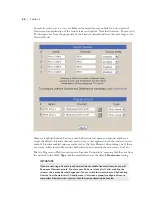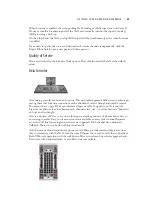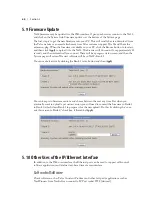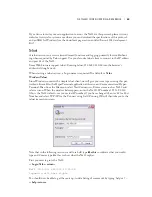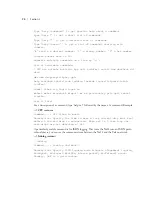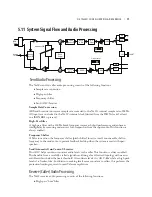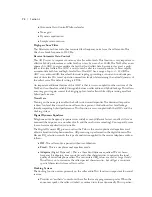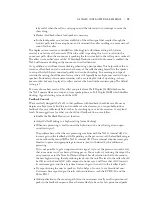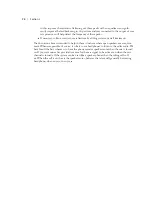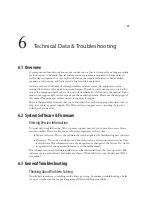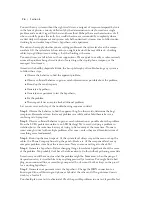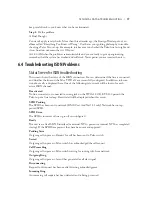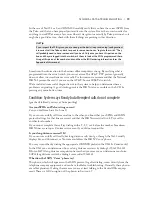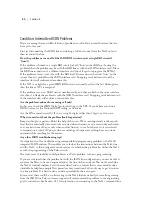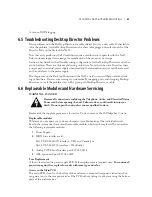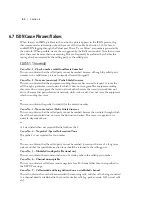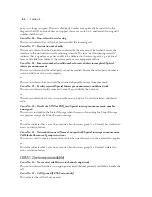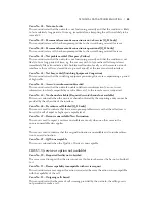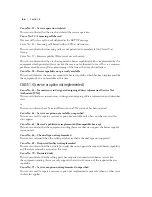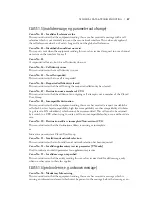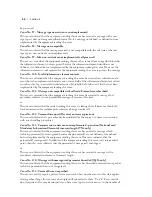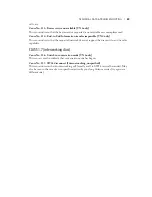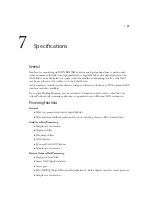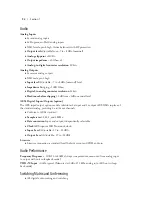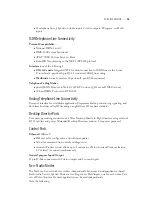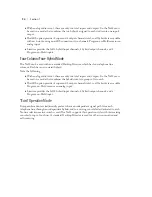
80
| section 6
Condition: Intermittent ISDN Problems
These are among the most difficult kinds of problems to solve. Rest assured, however, that we
have yet to lose one!
First try disconnecting the ISDN line and waiting a full 60 seconds (leave the Nx12 on) and
then reconnect the line.
Does the problem occur on all of the ISDN BRI circuits or just a single BRI circuit (2
“lines”)?
If the problem is limited to a single BRI circuit (ie both “lines” on that BRI are showing the
problem) then the problem may be with that BRI line or with that ISDN interface card. Move
the BRI line in question to a different interface card (don’t forget to reprogram the SPIDs).
If the problems moves it must be with the BRI itself. If it remains with certain “lines” on the
system then it is probably in the ISDN interface card. Swapping cards between two of the
interface slots will confirm or disconfirm this.
If the NT1 sync light for a given ISDN BRI circuit occasionally cycle to the fast flashing state,
then the line or NT1 is marginal.
If the problem occurs on 2 BRI circuits simultaneously, and they are both in the same interface
slot, then it is likely the problem is with that ISDN interface card. Swapping cards between two
of the interface slots will confirm or disconfirm this.
Are the problem confined to incoming call only?
In this case, check the ISDN (Telco) protocol setting in the TEL. If you believe your line is
DMS Custom try the National ISDN setting, or vice versa.
Are the DNs entered correctly? If so, try using 10 digits rather than 7 digits, or vice versa.
What is consistent about the problem (look for patterns)?
Keep watching for a pattern. Enlist the help of the users. We’ve seen apparently random prob-
lems that we eventually discovered only occurred when it rained, or on a certain day each week,
or at a certain time of day, or only when another line was in use. In other cases, it was related
to temperature or dirty AC power. Assume nothing and suspect everything. Leave no stone
unturned while searching for the answer.
Any other ISDN troubleshooting tips?
An important tool for troubleshooting incompatibility/programming problems is the Nx12’s
integrated ISDN analyzer. This enables you to look at the transactions between the Telco line
and the Nx12, so that a judgment can be made as to whether the problem lies within the Nx12
or with the programming of the Telco switch.
The usual cause of inability to dial problems is a Telco problem, such mis-programming.
If you are convinced that the problem lies with the ISDN line configuration, you may be able to
convince the Telco to have an engineer look at the line with an analyzer. This works much like
the Nx12’s internal analyzer, but with more detail, and in a format that is more readily under-
standable by telephone people. This procedure may sometimes be the only way to get attention
to a line problem. It is hard to deny evidence provided by their own gear.
In rare cases, there could be a software bug in the Nx12 that reacts badly to something coming
from the ISDN line. Telos customer support will communicate the problem to our engineering
guys for resolution. See Section 7.41 for information on connecting to the Nx12’s command line
Summary of Contents for Nx12
Page 4: ......
Page 42: ...32...
Page 100: ...90 Section 6...
Page 105: ...Specifications 95...
Page 106: ...96...
Page 108: ...98...
Page 112: ...102...
Page 124: ...114 Appendix 2...

